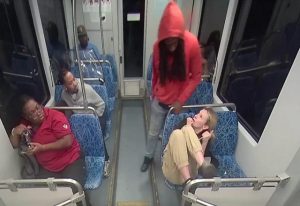Service Based Sociology: The Rewarding Class
October 14, 2022
The guiding philosophy: “We don’t do anything for profit. We don’t do anything to help folks who don’t need help. We’re looking for people who need social interaction.”
The service based sociology class, currently taught by Social Studies teacher Mr. O’Brien, was originally created around 1989 by Charlotte Spinny, a former WHS teacher and community leader.
“Service based sociology is supposed to be the combination of a social science class (sociology)…and use [the theories] to compel kids to do things just because they’re nice things,” Mr. O’Brien explains.
Students taking sociology with Mr. Chapman will recognize the concepts taught in service based sociology as the textbook is the same, but with an added component. In class, the focus is learning the sociology aspect: learning about people, identifying which resources are best to use data, and looking at how to predict what a section of the population will likely do.
“The focus isn’t so much about test, test, test,” Mr. O’Brien describes when discussing the classroom environment, “but more about what is real out there.”
Carolyn Gencarelli, a current student in the class, describes the class as a realistic, real-world class.
“It teaches you to be independent when you have to find your own service opportunities,” Gencarelli attested.
Outside of the classroom, students are required to complete ten hours of community service a quarter. Students are expected to better the town through programs like unified soccer, unified zoomba, visiting with elderly people at Beaumont Rehabilitation and Skilled Nursing or Whitney Place, or volunteering at a food kitchen. The intention is to involve students in giving back to the community, rewarding them with a level IV (honors) credit, and ensuring community service isn’t obligatory, but rather gratifying.
The class was quite popular from 1999-2002, the years when Mr. O’Brien taught the class after Miss Spinny; there were three sections of the class adding up to 61 total students. When the school underwent renovations in 2002 and the budget was cut for the schools altogether, the class was reduced to a half year, and the enrollment plummeted.
Before the changes were implemented, the class accomplished some remarkable activities.
“One of the truest things I’ve ever seen in my life,” according to Mr. O’Brien, was the Spring Fling, a prom for senior citizens at Beaumont.
The students in the class scheduled the event with Beaumont, and styled the hair, makeup, and nails of the senior citizens. All the students got dressed up in fancy dresses and dapper suits and ties. Late in the afternoon in the Spring of 2002, WHS seniors spent their time meeting senior citizens and showing them a special time. Mr. O’Brien also believes it was the most important event the class has ever completed.
Other amazing acts of service included: a rockathon where students set up rocking chairs in the gym at WHS and rocked overnight to raise $2,600 for cancer research, basketball tournaments with hundreds of people in attendance and a crop walk for hunger.
Mr. O’Brien hopes to restore the class to that level of commitment and believes his class of seven this year will do their best. One way Mr. O’Brien is hoping to increase the impact on the community in the class is by drawing more students to the class.
“The two biggest issues have been Covid and school scheduling changes,” Mr. O’Brien states.
Due to Covid, there wasn’t much the class could do in terms of engaging with other people, especially elderly people, which deterred the work students could accomplish. School scheduling changes over the years such as the increase in extracurricular activities students do serve as a barrier for students to complete their hours of service. Among playing sports, working, participating in clubs or arts, or doing homework, students barely have enough time to sleep let alone do community service, even on the weekends. That’s why the class is being more lenient about double-dipping for hours with say National Honor Society or Tri-M and service-based sociology. The required hours of service have dropped from 20 a quarter to 10.
If you’re looking for a senior class that feels like a genuine community discussing mature topics, and will fill you with satisfaction, while simultaneously earning honors credit without a prerequisite, definitely consider service-based sociology.
For more information, reach out to Mr. O’Brien at [email protected].








Akash • Oct 20, 2022 at 11:01 pm
Unique course